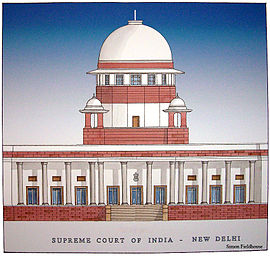 In the preceding article in our series rebutting Mr. Stephen Knapp, we have exposed some grave fallacies in the premise upon which he concludes the Vedic influence within Christianity, the premise being his alleged similarities between the life death and teachings of Christ and Krishna. We intend to devote this present Article to provide a strong case, to help remove the Krishna-Christ confusion once for all by G Bibu.
In the preceding article in our series rebutting Mr. Stephen Knapp, we have exposed some grave fallacies in the premise upon which he concludes the Vedic influence within Christianity, the premise being his alleged similarities between the life death and teachings of Christ and Krishna. We intend to devote this present Article to provide a strong case, to help remove the Krishna-Christ confusion once for all by G Bibu.
INTRODUCTION
In the preceding article in our series rebutting Mr. Stephen Knapp, we have exposed some grave fallacies in the premise upon which he concludes the Vedic influence within Christianity, the premise being his alleged similarities between the life death and teachings of Christ and Krishna. Far from being similar, we have discovered some fundamental differences in the very instances adduced by Mr. Knapp, as the proofs to his alleged similarities. For a better understanding of the line of thought in this discussion, please read the first part of this series.
At a later part of his article in question, Mr. Knapp lists out some more similarities, similarities in his judgment, and we will examine those instances in the days to come. But we intend to devote this present Article to provide a strong case, to help remove the Krishna-Christ confusion once for all.
Having listed out some of his alleged similarities between Christ and Krishna as refuted in our previous Article, Mr. Knapp complacently remarks:
“In this way, practically speaking, what we find in the Bible regarding Jesus’ birth is a description of the appearance of Lord Krishna, but only the names have been changed."
For an unbiased seeker, our previous Article would suffice to nullify this conclusion drawn by Mr. Knapp. For in it, we have completely wrecked the premise upon which he draws the above conclusion, that the story of Krishna has been forged in to the Bible in the name of Jesus. It will strike every candid reader who has considered our rebuttal there, that the instances cited as similarities by Mr. Knapp, are only so fabricated by misinterpretation, but that a closer look at the facts would expose his malice at once, proving the case to be quite contrary to his position, and hence leaving no scope for assuming the Vedic influence upon the Bible as he claims. The present article is devoted to present a positive case to establish, that there are some very fundamental differences in various attributes of Christ and Krishna. The differences present the two at such variance with and contrast from each other, that they leave no scope to confuse the one with the other, proving thereby that Mr. Knapp's position is untenable and completely unreasonable. Hence in this article,
1. We will first establish the clear contrast in the person and mission of Christ from that of Krishna.
2. We will then apply the contrast to some of Mr. Knapp's contentions in the article in question.
3. We will derive in closing, some practical conclusions for all to apply, who value the safety of their souls, than the prejudice of their minds.
Now let's begin to reason:
THE CONTRAST IN THE PERSON AND MISSION OF CHRIST FROM THAT OF KRISHNA'S:
Regarding Christ:
A. The angel of God who brought the tidings to Joseph declared:
Thou shalt call his name Jesus: for he shall save his people from their sins" (Matthew 1:21).
B. Jesus speaking of Himself said:
"For the Son of man is come to seek and to save that which was lost" (Luke 19:10).
C. The Divinely inspired Apostle of Jesus said:
"This is a faithful saying, and worthy of all acceptation, that Christ Jesus came into the world to save sinners" (1 Timothy 1:15).
D. Hence the Bible is very plain about the purpose of the Birth of Jesus. He was born to bring Salvation to the vilest of sinners, and the Bible promises Salvation to all who believe in Him.
E. Jesus Christ could accomplish this great mission of bringing Salvation to sinners, because He was himself without sin (Hebrews 4:16). The Bible expressly testifies about Him that He is "Holy, harmless, undefiled, separate from sinners" (Hebrews 7:26). The challenge he hurled upon the world continues triumphantly to echo, even unto this day:
"Which of you convinceth me of sin?" (John 8:44).Regarding Krishna:
A. In sharp contrast to Jesus, who came to make propitiation for the sins of others and to make Salvation possible to all who believe in Him, the Vedic Literature states that Krishna was born to bear the consequences of His own sins. In Chapter VII of the shashtama-Skanda (Eighth Skanda) of Devi Bhagawatham, we have the proof-text for this most crucial observation. It reads as follows:
"papam karothihi manujastathat diva-divopicha,Tatha narayano-rajan-narasya Dharmajavubhaul,jathav krishnarjune kavasav narayanasyasav,purana peetikeyam vimunivihiparikeerthisav."
MEANING:
"Thus it is written in the old writings (Purana Peetikas) of the Sages (Munis), that even as the humans; the gods; and the demigods do commit sinful acts, So did Narayana and Nara the sons of the sage Dharma commit sins, And as a consequence of their sins, Were born (reincarnated) as Krishna and Arjuna".
Those words were not written by Christians or Muslims. They are the very words of Vyasa the great Indian Sage to whose authorship are much of the Vedhic Literature ascribed. And these words clearly betray the true identity of Krishna, and the actual cause behind his birth. His birth had no such pious mission behind it as of establishing righteousness as he claims in the Bhagawat Geetha, but rather was occasioned because of his own unrighteousness which he had to pay for.
B. Nor does the above instance stand alone in establishing our case. Krishna himself made confession as to his sinfulness, while in his incarnation as Rama. Sloka 4 of Sarga 63 in the Aranyakanda of the Walmiki Ramayana, records this honest confession in the following words:
"poorvam mayanoona – mabhithshithani papani karmanya,
athkruthkruthani – sattha madhyapathitho,
vipako – dukkhenadukkham, yadaham vishami".
MEANING:
"Such misery upon misery that have now befallen me, are but the consequences of the several sins which I have committed in the past".
Those are Rama's own words recorded in the most authentic Valmiki Ramayana, and confirm the cause behind the various incarnations of Krishna.
C. It is common knowledge among the Hindus that Rama Krishna, etc, are but the various incarnations of Vishnu. This Vishnu, who is supposed to have incarnated in to
nine Avataras so far, had this confession to make about himself, as he laid prostrate at the feet of the great Brugu Maharshi, as recorded in Chapter VII of Rudrakoti Mahathyam, of the Skanda Purana:
"Thatho vishnum – samagathya pranamya munipingavam,
pramado drohamarardham – kshamayesthe thava yachithaha".
MEANING:
"And then did Vishnu prostrate before the Muni (the sage) saying, surely have I besought thee to pardon me for the sin I have committed against thee".
Such a person as Vishnu, could never have incarnated to save others from their sins. How could he when he was himself not holy and sinless?
The Contrast:
A. As seen from the facts above as plainly contained in the very Scriptures which are the final court of appeal in determining the Doctrines of the two religions in question, Jesus Christ is Holy and sinless. Such an immaculate holiness is the very attribute of God. Any one who is devoid of this most essential attribute of Divinity, cannot be God. By these standards, Krishna is not God. Jesus Christ is God, yea the sinless savior who alone can save sinners.
B. Jesus Christ came in to this world to save sinners and to bring them Salvation. Krishna on the contrary came to suffer for his own sins.
C. The instances such as the above, clearly bespeak of a human corrupt heart behind the invention of what the heathens worship and serve as their gods. As rightly expressed by A.W.Pink in this connection: "He who resolveth not to be holy must seek another god to worship and serve, for with the God of the Bible he will never find acceptance. The heathen of old realized this, and liking not to retain the knowledge of the true God in their hearts and minds (Romans 1:28), and resolving to give up themselves unto all filthiness with greediness, they stifled their notions of the Divine Being, and invented such "gods" to themselves, as were unclean and wicked, that they might freely conform unto and serve them with satisfaction. The God of the Bible has Himself declared, that men of corrupt lives have some secret hopes that He is not holy: "Thou thoughtest that I was altogether such an one as thyself: but I will reprove thee" (Psalms 50:21)" (A.W.Pink, The Doctrine Of Sanctification).
D. These are some fundamental differences between Christ and Krishna which no one can deny without first denying the Scriptures from which we establish our claims. No court of law can justly impose any ban on our view points without first banning the Vedic sources from which we have gained this enlightenment.
APPLICATION OF THE ABOVE FACTS AGAINST MR. KNAPP'S CONTENTIONS:
Having listed out the alleged similarities between Christ and Krishna in his article in question, Mr. Knapp attempts to explain some theories on how those similarities could have come about. Such theories as to how the similarities might have come about, may perhaps have some value, if the alleged similarities could be established as true in the first place.
But now when viewed in the light of our refutation of the alleged similarities in the preceding article, and the clear contrast that we have established in the present article, his theories stand confuted of themselves, because these theories and contentions were all adduced in support of the assumption of similarities between Christ and Krishna which he has failed to prove. In other words, the dissimilarities and contrasts as we have established without any ambiguity, will suffice independent of all other considerations, to refute all the theories, evidences, and contentions of Mr. Knapp, along with the concurring contentions of others like him, as presented in his article in question.
Hence his theories and contentions which adorn the remaining length of his article, suggesting how the similarities between Christ and Krishna might have come about, are no more significant than a gynecologist conjecturing the time of conception of a baby in an empty womb, or a forensic laboratory reporting the cause of death of a corpse in an empty tomb. If this analogy is absurd, it is so, simply because of what it is designed for to denote. Who would be interested about the time of conception of a child, when infact, there has been no such conception? Who wants a report on a murder which was never committed? And who wants theories about when and how the similarities came about, when there are no such substantial similarities to start with?
However, in the next article we will furnish specific counters against each theory and contention presented by Mr. Knapp, in order that we may stop the mouths and pens of those who would assume the similarities from the theories, unlike Mr. Knapp who has assumed the theories from the similarities. Moreover, we have admitted in the previous article that there are some superficial similarities which though incapable in themselves to abolish the fundamental differences between the two religions in question must nevertheless be accounted for to show how they need not substantiate the theories and contentions of Mr. Knapp in this regard. While we intend to devote the next article to this end, we will now move on to some practical applications of the contents in the present article.
SOME PRACTICAL OBSERVATIONS FOR ALL TO APPLY:
1. Salvation from sin is one of the primary ends taught in every major religion. While this is evident even from a superficial skimming through the Bible, a somewhat deeper study in to the Vedic literature will confirm similar sentiments in its teachings also. For instance, we read the following prayer in the Manu-Smruthi, which is recited as a part of the devotions at sunset (sandhya vandanam):
"papoham, papa karmaha;
papatma, papa sambhava;
thrahimam krupaya deva;
sharanagatha vathsala".
MEANING:
"Behold I am in sin, and I sin;
Behold I am a sinner, being born in sin;
Save me O merciful God;
For in thee I trust is my salvation".
Hence is here a common ground for both Christians and Hindus to begin to reason together.
2. Salvation from sin is essential to be united to God. This argues for the fact that God is infinitely holy and that His character, His attributes and His acts are absolutely sinless, decked with impeccable perfections and adorned in immaculate purity. As a result everything that is sinful and is defiling cannot be united to God. Therefore the sin which separates man from his maker, must first be atoned for or removed before he can be reconciled to God. This in simplest terms is the complete essence of Salvation.
3. God being sinless and holy, has the power to save and the right to damn sinners. Any entity which is sinful is not only devoid of holiness which is an essential attribute of divinity, but also as a consequence has no power to save and has no right to damn sinners, himself being in need of salvation, and fully deserving damnation. "Nemo Dat Quod Non Habet" (No One Can Pass On A Better title To Others Than What He Himself Has).
4. We have already seen while drawing the distinctions between Christ and Krishna, that they primarily differ on the attribute of Holiness. Christ is holy and sinless, whereas Krishna is a sinner and is therefore devoid of the essential attribute of Divinity. Christ is the
refore able to impart Salvation to those who believe in Him. Krishna cannot do so, himself being destitute of Salvation.
5. Several Gurus like Mr. Knapp often seek to confuse the identity of Christ with their choice deities, attempting to draw some vague similarities between their lives and teachings. This vile plot often deceives many in to believing that the one story is forged from the other, or that there perhaps is no difference between the two entities except in their names. These Gurus adopt such an approach in a calculated effort to divert attention from the clear distinctions between Christ and other "deities", lest the Holiness of the former should draw their pupils away from the sinful enslavement of the latter.
6. Dear reader, do not get complacent about the god you believe. If the one you believe is God, then there can be none better than him in any of his attributes. But if there is one better than him, it would be mere prejudice to continue believing in the lesser.
7. When you know that there is but one and only medicine to your malady, it behooves you to ensure that you are being medicated therewith, rather than to blindly argue that any pill like thing you have been consuming hitherto is just the same as that medicine. Likewise, if you understand that only a God who is Himself without sin can heal you of your sin and save your soul, there is much more at stake than what you imagine if you fail to give your life to this Holy God, renouncing those you considered to be gods hitherto. The decision you make on this most vital aspect has eternal consequences to it.
8. We urge the reader who values the safety of his soul, than the prejudice of his mind, to earnestly devote himself to study the distinctions between Christ and Krishna, or between Christ and any "deity" of his choice for that matter. Any one who undertakes this task with honesty and with a prayerful heart, asking the creator to lead him in to all truth will be compelled to bow his knee and confess unto Christ saying:
"Among the gods there is none like unto thee, O Lord; neither are there any works like unto thy works. All nations whom thou hast made shall come and worship before thee, O Lord; and shall glorify thy name. For thou art great, and doest wondrous things: thou art God alone. Teach me thy way, O LORD; I will walk in thy truth: unite my heart to fear thy name. I will praise thee, O Lord my God, with all my heart: and I will glorify thy name for evermore. For great is thy mercy toward me: and thou hast delivered my soul from the lowest hell" (Psalms 86:8-13).
May God almighty lead every reader in to this realization and repentance. May the reader see salvation for his soul in nothing besides the redemptive sacrifice of Christ Jesus upon the cross, yea in that just one who took upon himself the penalty of all sins of all who believe in His Holy Name.
We will continue to answer Mr. Knapp in the next article.
Read the Part 1 here.
{moscomment}




